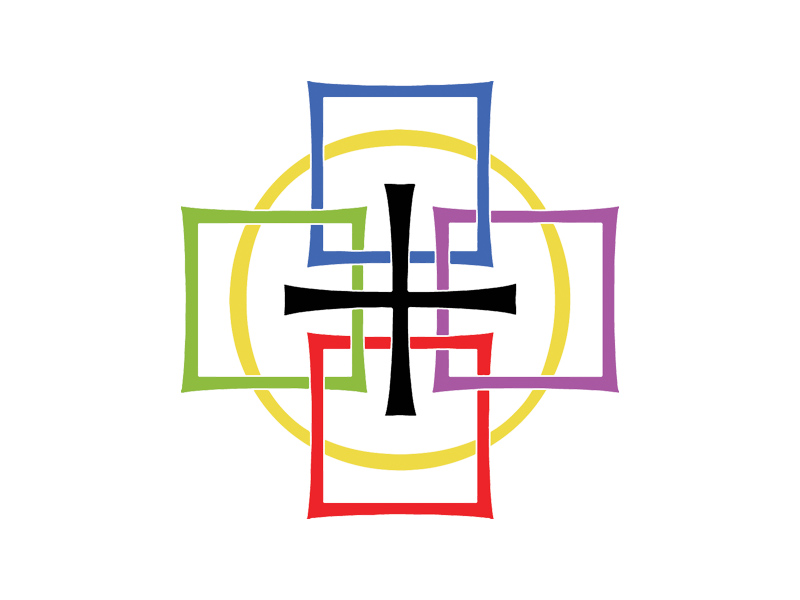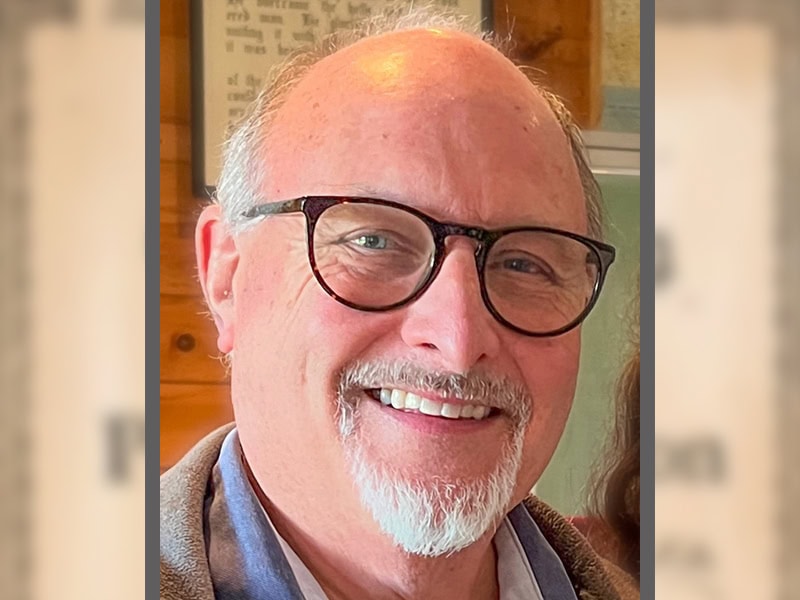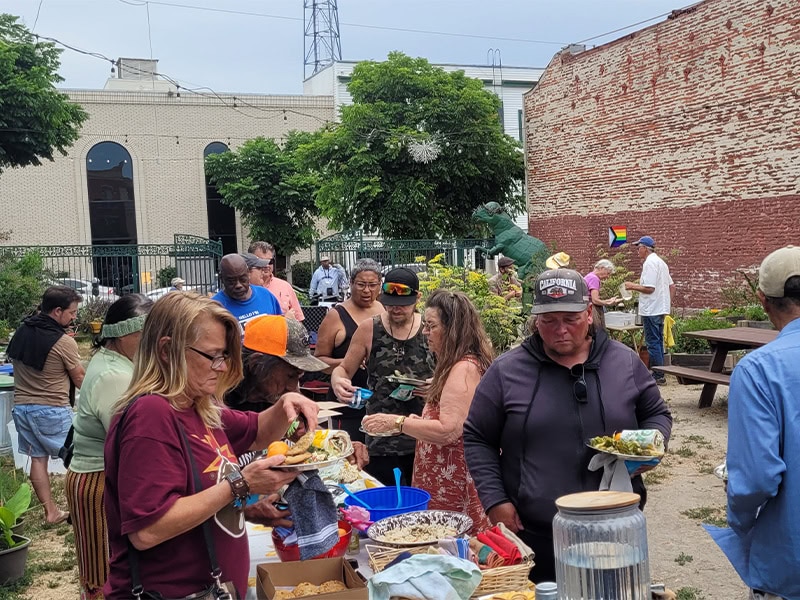Easter Sermon from April 20, 2025 by Rich Tafel
Good morning, and Happy Easter. The Lord is risen. And the good news of Easter is—so are we.
Each Easter has a special and unique message. I’m thinking back today to Easter 2021, just as the world was catching its breath after the pandemic, and in my sermon I asked:
“What will you leave behind?”
At the time, the world had been disrupted. We paused, we reflected, and for a moment I hoped we might begin to release our growing culture of contempt and move toward compassion. And for a little while, it seemed possible.
But as you know, contempt didn’t go quietly. And here we are again—in another time of disruption.
This Easter 2025, meets us in the midst of the worst civil crisis in my lifetime. We face national division, global tension, and personal uncertainty.
In the midst of this chaotic world, this Easter brings a new question:
“What are you rising into?”
Because the resurrection of Jesus isn’t only about what we leave behind. It’s stepping into the new life that’s waiting just outside the tomb.
In today’s gospel, we return to one of the most intimate, beautiful moments in the resurrection story:
It’s early morning in the garden. The tomb is empty. Mary Magdalene, the most faithful follower of Jesus, is there. The other disciples are in hiding, but Mary shows up. Heartbroken. Confused. The body is gone.
Then she sees a man standing nearby she believes is a gardener. She doesn’t recognize that it is Jesus, and that’s the part that always catches my attention. It doesn’t make sense. How could it be that Mary didn’t recognize her closest friend, her healer, her teacher?
Swedenborg gives us a beautiful answer:
Because Jesus had changed. He was risen. He had entered a new spiritual state. A transformation had taken place. Then He says her name.
“Mary.”
And in that one word, everything shifts. She knows.
“Rabbi!” she cries.
Of course, what does she do next? What would you do next? She reaches out to Him—to touch, to hold, to cling. But then something even stranger happens. Jesus says:
“Do not cling on to me.”
What? Why? Why wouldn’t He let her embrace Him?
The answer is because their relationship had changed. He’s saying, “You can’t relate to me as you did before. You must come to know me in a new way—spiritually, inwardly, eternally.”
He isn’t rejecting her love; He’s expanding it.
Throughout His life, Jesus was gradually uniting His human nature with the Divine. That process, what we call glorification, culminated after the resurrection. When Jesus says, “Do not touch me,” he’s telling Mary and us that the relationship has changed. It’s no longer about physical closeness. It’s about an eternal spiritual union. She must grow in order to meet Him where He is now. And so must we.
This is the journey of resurrection.
It’s not just something that happened to Jesus. It’s what happens in us—again and again.
We must grow to meet Him. We die to our old selves. We rise to something new. And yet, like Mary, we often try to cling.
We cling to what was—how God used to show up, how life used to feel, how we used to define ourselves. We want our churches, our politics, even our image of God to remain fixed and familiar.
But that’s not the way it works. The spiritual life is about constantly growing.
I remember as a kid, our Sunday school teacher asked us all to draw a picture of God. Everyone produced old men with grey beards, except me. My drawing freaked people out. It was one big, huge eye, and the eye had eyes all over it.
My Sunday school teacher asked, “What’s this?”
I explained that God can see everything at all times, so God must be an eye. Years later, someone explained to me that the eye on the pyramid on the dollar bill represented the all-seeing eye of God. Maybe I was onto something. I was using my childhood understanding to make sense of God, and that was great for a kid, but my relationship had to grow, and I grew—it’s been evolving ever since.
The resurrection demands transformation in our own lives and understanding. This disruption we’re living through right now feels like the end of something. But I also believe it is the beginning of something deeper.
We prefer to cling to what we know, often missing the new possibility ahead of us. We cling to the past in our personal lives, too. Letting go of the familiar, however imperfect, is scary. The past offers certainty; the future requires trust. Clinging becomes a coping mechanism.
In my executive coaching practice I met many clients who stay in a job or relationship that’s comfortable but stagnant, afraid to take a leap into something more aligned with their purpose.
I often shared the lessons from the book, What Got You Here Won’t Get You There: How Successful People Become Even More Successful.
In it, Marshall Goldsmith explains that the very habits and skills that help people achieve success early in their careers can become obstacles when trying to reach the next level. Growth requires letting go of old behaviors, even if they once served us well.
Another great teaching about this is in the book by Gay Hendricks called, The Big Leap. In the book he explains how we upper limit ourselves.
The “Upper Limit Problem” is the internal resistance we experience when we begin to exceed the level of happiness, success, or love we’re used to. It’s a subconscious self-imposed limit based on old programming—beliefs from childhood, past trauma, or societal conditioning. Even if the comfort zone is painful or small, it’s familiar.
When we start to experience more joy, creativity, or abundance, our old subconscious beliefs kick in and say: “This is too much. Who do you think you are? You shouldn’t be paid this? You shouldn’t have this easy a life?”
We self-sabotage and cling to the past.
The book teaches that to grow, we must let go. Hendricks invites readers to shift into their Zone of Genius—the space where your deep purpose and joy align. But to do that, you have to release old fears, patterns, and limits. It’s a conscious choice to stop clinging to what got you here and leap into what’s next.
But change is tough.
I remember working with one coaching client that had achieved financial and status success in his career. He knew his purpose was to do something more. After months of painstakingly making plans to start a new life of purpose, he told me he wanted to stop coaching.
When I asked why, he reported that the stress of leaving behind his status and what he knew was too much. The image he shared was driving a bike up a hill each week—it was time to turn around to the safety he felt he had.
All of us have felt that at some time. We’ve all retreated into comfort and clinging. But clinging has a cost. The cost of never living into your greatest purpose. The cost of never trusting God will lead you through the unknown. The cost of never living a full life.
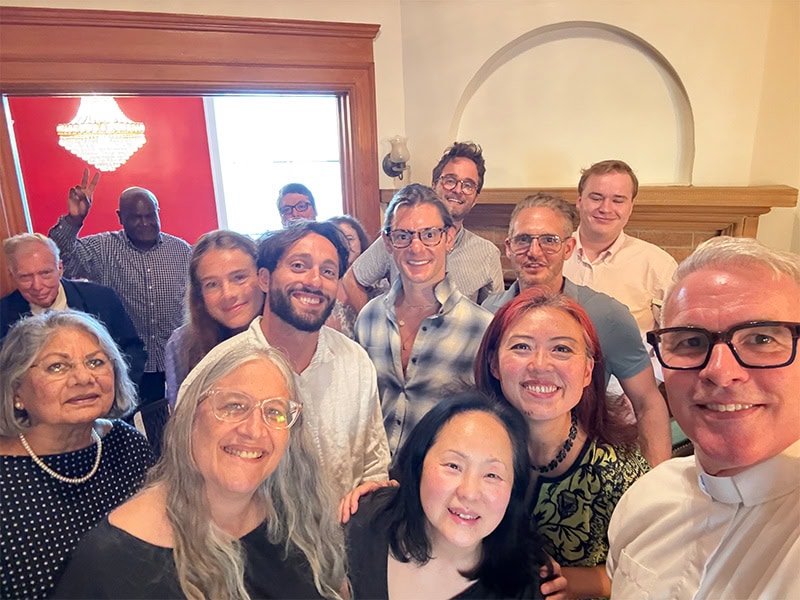
Today, ask yourself what you are clinging to? Where do you need to transform to have a new, evolved relationship with God?
Whatever it is—this Easter is your invitation to let it go. To open yourself. To take the big leap. To stop clinging. Because something new is rising in you. You can feel it. You might be afraid of it. You might be denying it. You might be fighting it. But it’s real. And it’s time.
Jesus came back transformed. And He calls us to do the same. Because the way forward isn’t about clinging. It’s about trusting. Jesus didn’t say goodbye to Mary—He said, Go forward. He moved the relationship from physical time and space to a spiritual, eternal communion.
And that’s how Christ consciousness is working within you now—moment by moment, action by action. That’s the gift of the resurrection.
So this Easter stop clinging to who you think you’re supposed to be—and become who you really are. This Easter stop clinging to the wound—and rise into healing. This Easter will we, as a church, stop clinging to what was—and rise into what’s next?
We don’t need to be afraid. Even when it’s unclear. In fact, it will be unclear. Remember, Mary’s confusion. Mary didn’t recognize Jesus at first. Sometimes we won’t either.
This Easter Jesus is calling your name. And when you hear it, you will know. So let me ask you one last time:
This Easter, what are you rising into?
— Amen.
Read the full issue of the June 2025 Messenger
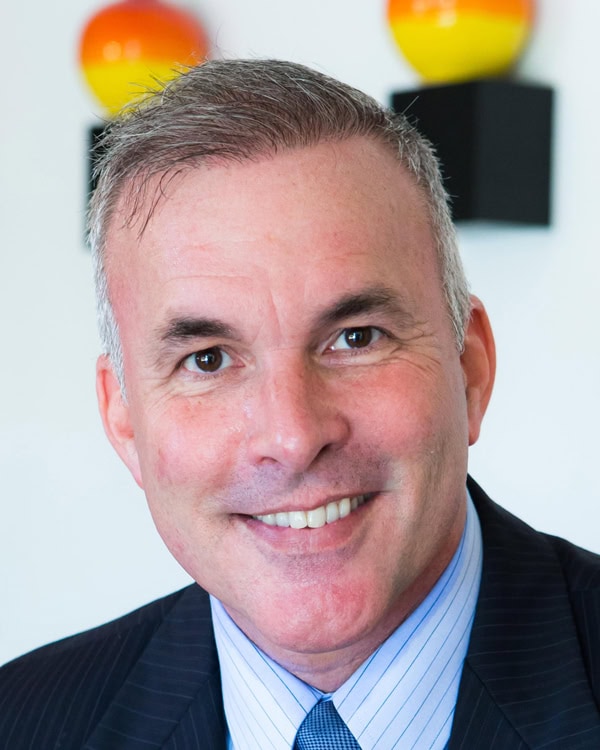
Meet Rich Tafel
Rev. Tafel is the pastor of the Church of the Holy City in Washington, D.C. He is a strategist who works at the intersection of faith, business, and politics to build bridges bringing together unlikely coalitions to solve some of the world’s greatest challenges.

